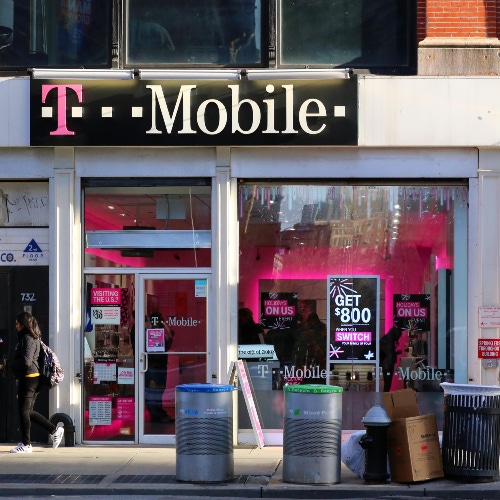T-Mobile continues building an ad business, despite ongoing controversies
T-Mobile is now officially selling its Android customers' data, even while its corporate parent Deutsche Telekom states that 'the most valuable thing that our customers entrust to us is their personal data.'

T-Mobile US is now expanding and formalizing an advertising business built on the sale of its Android customers' app usage and behavior. Such data is becoming increasingly difficult for advertisers to obtain as companies like Apple and Alphabet (Google's parent company) move to limit the amount of data that advertisers can get from their smartphone platforms.
T-Mobile's efforts are also noteworthy in light of the positioning of its parent company, Deutsche Telekom, which ostensibly takes a hard line against the sale of its customers' private data. According to a lengthy article on the topic from Germany's Handelsblatt, Deutsche Telekom states that "the most valuable thing that our customers entrust to us is their personal data." The company also implies that this approach is applied across its global businesses (DT owns roughly 48% of T-Mobile US). Further, DT CEO Timotheus Höttges has rallied against Big Tech companies like Facebook and Google because their businesses are built on the sale of their users' data to advertisers.
But DT's positioning apparently doesn't apply to T-Mobile's new advertising business in the US.
According to a new article from AdExchanger, T-Mobile has changed the name of its advertising business from T-Mobile Marketing Solutions to T-Mobile Advertising Solutions. The company now sells a platform that allows marketers to track, segment and target T-Mobile wireless subscribers, primarily with Android devices, based on the apps they have installed on their phone. The platform also tracks customers' engagement patterns, including apps they open, the Wi-Fi networks they join and the websites they visit.
Figure 1:  (Source: Robert K. Chin - Storefronts/Alamy Stock Photo)
(Source: Robert K. Chin - Storefronts/Alamy Stock Photo)
T-Mobile's ad business, headed by Mike Peralta, launched a beta offering last year. Earlier this year, it worked with the Digital Advertising Accountability Program to move into compliance with the Digital Advertising Alliance's (DAA) Self-Regulatory Principles. T-Mobile also acquired another advertising business earlier this year, Octopus Interactive, to bolster its advertising effort.
No concerns
According to the Handelsblatt article, DT supports T-Mobile's advertising program because its US customers have the option of opting out of participating in the program. According to The Verge, T-Mobile offers an Android and iOS app called "Magenta Marketing Platform Choices" that allows customers to see which companies have their data and to opt out. "You can also use App Choices if you don't want to, you know, download a T-Mobile app to opt out of T-Mobile app tracking," according to the publication.
However, Handelsblatt notes that under German law, an "opt-out" would not be sufficient to meet local regulations. Further, DT's own "Group Data Protection Policy" states that its users must obtain "express" and written consent before their data is processed. The policy also applies to fully consolidated subsidiaries such as T-Mobile US, according to the publication.
Despite this apparent contradiction, Handelsblatt reports that neither T-Mobile's US business nor its German parent have any concerns. "Deutsche Telekom was not involved in setting up the advertising program," T-Mobile US told the publication. And a DT spokesperson said, "There were no concerns."
According to AdExchanger, T-Mobile is working to expand the capabilities of its advertising program, including potentially expanding it into the iPhone ecosystem. McDonald's is among the companies that have used T-Mobile's ad platform.
T-Mobile's efforts come amid a large number of reports highlighting the troubles and controversies around the sale of mobile users' personal data. A recent Motherboard article highlights the fact that the US Centers for Disease Control and Prevention (CDC) bought access to location data harvested from tens of millions of phones in the US to monitor the effectiveness of COVID-19 lockdowns.
Partly in response, some Congressional lawmakers are pushing new legislation designed to allow consumers to opt out of targeted advertising and to require companies to minimize the data they collect, among other measures.
Related posts:
— Mike Dano, Editorial Director, 5G & Mobile Strategies, Light Reading | @mikeddano
About the Author(s)
You May Also Like











